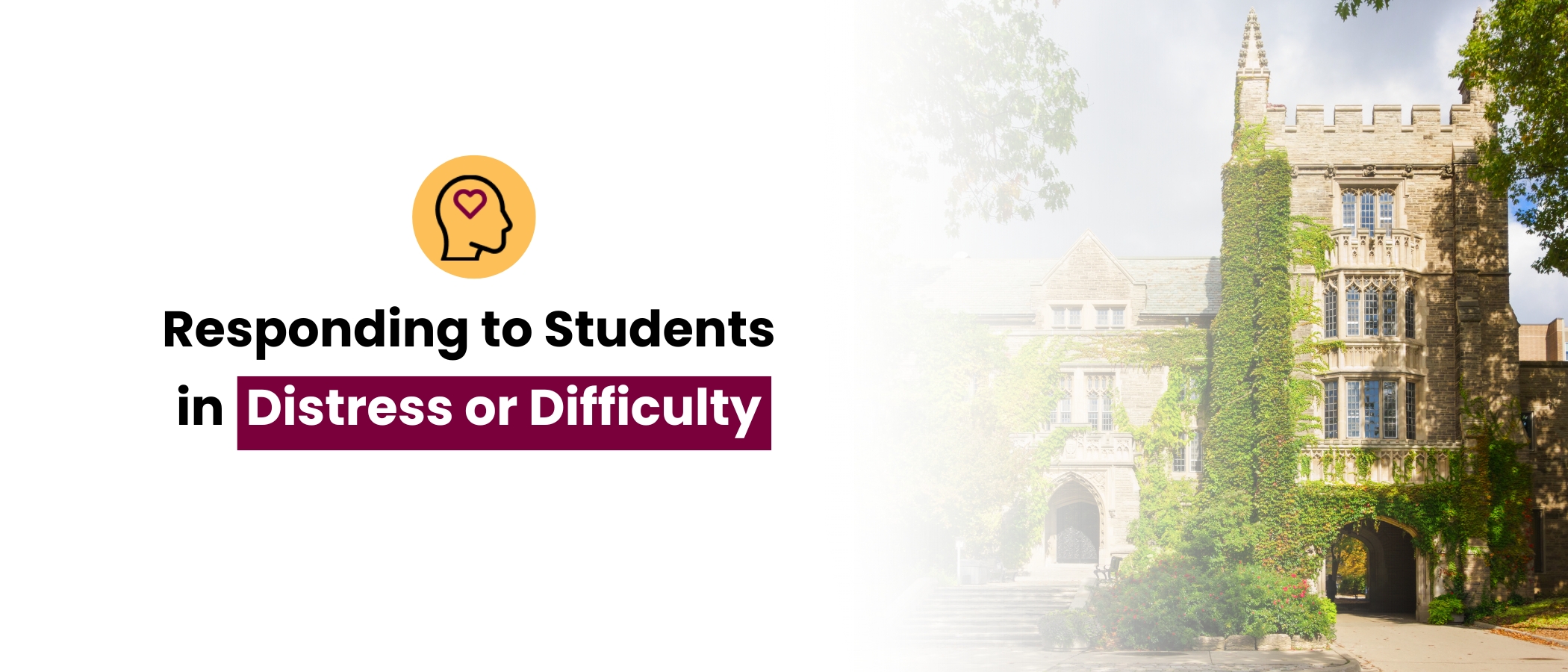Overview
The Responding to Students in Distress or Difficulty (RSDD) protocol was developed to guide student-facing staff and faculty on how to recognize and reach out to students in distress or difficulty and connect students with appropriate resources and support.
Within the RSDD protocol are six steps designed to navigate your interaction with students: Recognize, Reach Out, Rate, Respond, Review, and Reflect. Through the protocol, you will learn indicators to watch out for which may indicate a mental health challenge, as well as who to connect a student with to provide them with the most helpful support in that moment.
Who Should Use the RSDD?
The RSDD protocol is designed to be used to assist faculty, staff, and others in the McMaster community to identify, communicate with, support, and connect students with appropriate resources when they are experiencing distress, difficulty, mental health or substance use issues.
To learn more about how to apply the RSDD and respond to students in distress or difficulty, it is highly recommended that you complete the Professor Hippo-on-Campus Mental Health Education Program, including the modules and workshop.





